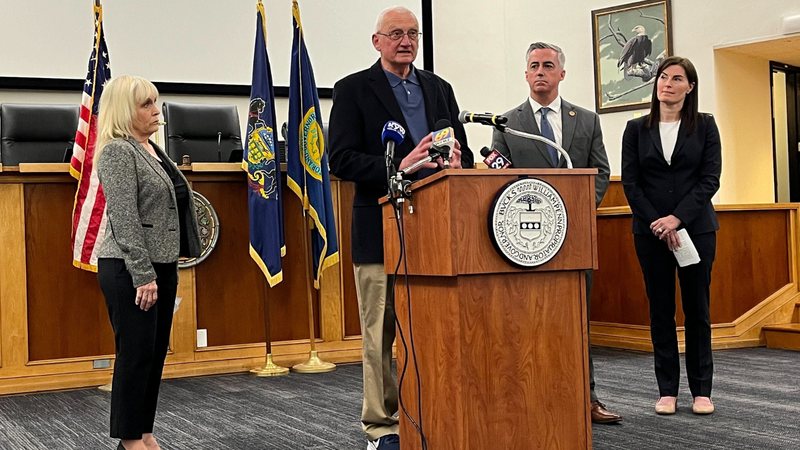
BUCKS COUNTY, PA (KYW Newsradio) — Bucks County has filed a lawsuit seeking damages from big oil companies, alleging they knew the effects their products had on the climate but hid that information to protect profits.
The defendants listed are BP, Chevron, ConocoPhillips, ExxonMobil, Shell, and the American Petroleum Institute.
County Solicitor Amy Fitzpatrick says Bucks County is the first county in Pennsylvania to take legal action against large oil companies for their decades-long deceptive practices in addressing the impact of climate change.
The suit argues there are more frequent severe and damaging storms due to climate change. It seeks to recoup money the county has had to pay for repairs and remediation.
Bucks County Democratic Commissioner Diane Marseglia says the firm handling the suit is working on a contingency basis and would only be paid if the suit is successful.
“It's costing us money,” Marseglia said. “Now, every time our first responders have to go out, every time we have to repair things, it's expensive now, and it's on the backs of the taxpayers now.”
Fitzpatrick says the suit doesn’t argue the correlation between fossil fuels and climate change. Instead, it’s focused on what these companies did and how they actively “obfuscate that information so that governmental leaders like our commissioners were hamstrung in preparing for the effects of climate change.”
Bucks County Republican Gene DiGirolamo says he doesn’t think climate change should be a partisan issue.
“Climate change is real,” DiGirolamo said, “and it's going to affect us in negative ways the more we go on if we don't start paying attention to this and doing something about it.”
KYW reached out to companies listed in the suit. Several declined to comment on the pending litigation.
In a statement, Theodore J. Boutrous, Jr., counsel for Chevron, said, “Addressing climate change requires a coordinated international policy response, not meritless local litigation over lawful and essential energy production. As the U.S. Court of Appeals for the Second Circuit held in dismissing a similar New York City lawsuit, ‘such a sprawling case is simply beyond the limits of state law.’”
